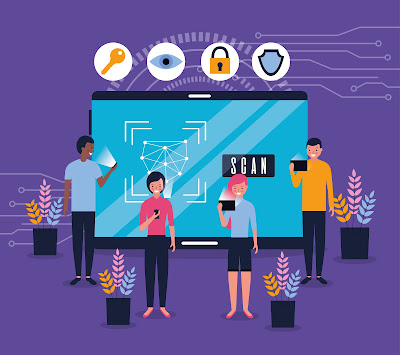In the realm of web development, choosing the right framework can significantly impact the success and efficiency of a project. Among the myriad of options available, Flask emerges as a lightweight micro-framework that offers unparalleled flexibility and control to developers. From custom website development services to mobile app development services, Flask empowers developers to craft elegant and scalable solutions tailored to their specific needs.
Introduction to Flask
Flask, a microframework for Python based on Werkzeug and Jinja2, was created to provide developers with a simple yet powerful tool for building web applications. Developed by Armin Ronacher, Flask embodies the philosophy of simplicity and minimalism, allowing developers to focus on writing clean and concise code.
Key Features of Flask
1. Lightweight and Minimalistic:
At its core, Flask is designed to be lightweight and minimalistic, providing developers with just the essentials needed to build web applications. Unlike full-fledged frameworks like Django, Flask imposes fewer constraints and allows developers to have more control over the components they use, making it ideal for projects that require a high degree of customization.
2. Extensibility:
Despite its minimalistic nature, Flask is highly extensible, thanks to its modular architecture and vibrant ecosystem of extensions. Developers can easily enhance the functionality of their Flask applications by incorporating third-party extensions for tasks such as authentication, database integration, and API development. This extensibility makes Flask suitable for a wide range of use cases, from simple static websites to complex web applications.
3. Built-in Development Server:
Flask comes with a built-in development server that simplifies the process of testing and debugging applications locally. This lightweight server is easy to set up and provides developers with a convenient way to preview their changes in real time, facilitating rapid iteration and experimentation during the development process.
4. Jinja2 Templating Engine:
Flask integrates seamlessly with Jinja2, a powerful and feature-rich templating engine that enables developers to build dynamic and interactive web pages with ease. Jinja2's syntax is intuitive and flexible, allowing developers to create reusable templates and customize the presentation of their content without sacrificing performance.
5. RESTful Request Dispatching:
Flask provides built-in support for creating RESTful APIs, making it an excellent choice for building backend services for custom website development services and mobile app development service. With Flask's lightweight routing system and flexible request handling, developers can easily define endpoints, handle HTTP methods, and serialize data to JSON or other formats, facilitating seamless communication between clients and servers.
Flask for Custom Website Development Services
For businesses in need of custom website development services, Flask offers a compelling solution that combines simplicity, flexibility, and control. Whether it's a corporate website, a portfolio site, or a blog, Flask empowers developers to create elegant and responsive web experiences tailored to the unique needs of their clients.
Example: Portfolio Website
Consider a freelance web developer looking to showcase their portfolio of projects. With Flask, the developer can quickly set up a lightweight web application that highlights their work, skills, and contact information. By leveraging Flask's minimalistic architecture and Jinja2 templating engine, the developer can create a visually appealing and user-friendly website that effectively showcases their talents and attracts potential clients.
Flask for Mobile App Development Services
In addition to custom website development services, Flask is also well-suited for mobile app development services. With the rise of mobile devices and the increasing demand for mobile applications, businesses are turning to frameworks like Flask to build lightweight and scalable backend services to support their mobile apps.
Example: Task Management App
Imagine a startup developing a task management app for mobile devices. By using Flask to build the backend API, developers can create a reliable and efficient communication channel between the mobile app and the server. Flask's lightweight architecture and RESTful request dispatching make it easy to define endpoints for tasks such as creating, updating, and deleting tasks, while its extensibility allows developers to integrate additional features such as user authentication and push notifications.
Conclusion
In conclusion, Flask emerges as a lightweight micro-framework that offers unparalleled flexibility and control to developers seeking to build custom website development services and mobile app development services. With its minimalistic architecture, extensibility, and built-in features, Flask empowers developers to create elegant and scalable solutions tailored to their specific needs. Whether it's a simple portfolio website or a complex mobile app backend, Flask provides developers with the tools they need to bring their ideas to life in the digital realm.





